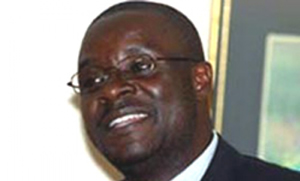Govt spells out position on summit

the country, draw clarity on the election roadmap and defend the unity of the regional body.
Senior Government officials yester-day said Harare’s position at the su-mmit has been shaped by two issues:
(1) The decisions of the Sadc troika summit in Livingstone, Zambia, on Zimbabwe.
(2) The legality of the Sadc Tribunal, which has passed judgments at variance with Zimbabwe’s constitutional stance on land reform
According to the officials, the first objective is to ensure the decisions of Sadc are properly understood and de-fended because there had been a lot of misinterpretations on the troika’s resolutions in Livingstone and the legality of the tribunal.
“Our objective at the summit is to ensure that the correct and accurate situation of Zimbabwe is communicated and that means ensuring a correct reading of the troika decision which has been interpreted variously to serve ulterior motives.
“We also want the region to recognise that since Livingstone there are milestone steps which have been taken by the three parties in the inclusive Government through their negotiators.
“The Zimbabwe that came under discussion in Livingstone and the Zimbabwe (to be) described in Windhoek indicate a progressive evolution in res-pect of GPA (Global Political Agreement) issues, violence and the working relationship between political parties. That kind of discussion will shape the summit,” said the Secretary for Media, Information and Publicity Mr George Charamba.
He said following the Livingstone summit, there have been preferred interpretations of the meeting’s decisions on Zimbabwe.
Mr Charamba said the western world has been propagating that Friday’s extraordinary summit was to re-examine the land question in Zimbabwe and suggesting that Livingstone condemned a party (Zanu-PF) to the GPA and a principal to the inclusive Government (President Mugabe).
The Livingstone summit resolved that the parties in the GPA should fully implement the agreement, end violence and come up with an election roadmap before conducting polls to choose a government to succeed the inclusive administration.
But Mr Charamba said the Livingstone summit had come up with its position after regional leaders were alarmed by a one-sided presentation to them by MDC-T, which claimed that:
- President Mugabe was now incapacitated to run the country.
- There was a silent coup in Zimbabwe.
- Resurgence of violence of unmitigated proportions against its members.
Mr Charamba said the claims were a “fallacy” because police investigations have found MDC-T to be responsible for most of the political violence cases, which have also taken the form of intra-party skirmishes in the run-up to and during the party’s recent congress in Bulawayo.
President Mugabe recently dispat-ched envoys into the region to explain the situation in Zimbabwe.
“This is what we have been corre-cting. Leaders in the region are expressing extraordinary surprise at the facts that are coming from the Zanu-PF envoys. The MDC has a lot to explain on the violence,” he said.
The West and some local political forces have also misread Livingstone to the extent of saying Zimbabwe was now at odds with Sadc.
Britain and the United States were jolted into action a few days after Livingstone as debates in the British Parliament (one in the House of Lords and two in the House of Commons) and Washington’s pronouncements expo-sed the West’s meddling in Zimba-bwean affairs.
The debates and pronouncements indicated London and Washington’s readiness to be involved in the cra-fting of the election roadmap.
“Zimbabwe is not at all at variance with Sadc much as the West wishes that kind of conflict.
“The western world has made these comments thinking that we have now got a fissure in a divided Sadc.
“The objective is to defend the unity of Sadc and it is precisely the unity and solidarity in Sadc that has seen the region resolve conflicts including in Zimbabwe. That unity is now under attack.”
Mr Charamba said Zimbabwe was expecting clarity from the summit on
the elections roadmap given the work put in by the three parties negotiators on reviewing the political situation, GPA issues and crafting of the electoral plan.
“All we are looking for is the seal of Sadc.”
Zimbabwe also expects Windhoek to deal with the issue of sanctions, which are an outstanding issue under the GPA.
The Sadc team sent to Europe and the US to ask for the lifting of the sanctions brought back modest results and Windhoek will have to deal with the clear reluctance of the west to lift the embargo.
A senior official in the Ministry of Justice and Legal Affairs said Friday’s meeting would discuss the constitutionality of the Sadc Tribunal and not its judgments on Zimbabwe’s land issue, which Harare has already disregarded as not binding.
Perception has been created that the summit will deal with Zimbabwe’s land question but the official said that was out because the tribunal was undermining Zimbabwe’s liberation struggle, which premised on the land issue.
“The land lobby at home and abroad want to see the meeting discussing the judgment on Zimbabwe’s land question. But the meeting will interrogate the constitutionality of the Sadc Tribunal itself, its legality and validity. It’s not about the land or the judgments of the tribunal, it’s not a summit on the decision of the tribunal,” said the official
Sadc Justice Ministers recently acknowledged that the tribunal was improperly constituted and its decisions were null and void.
The ministers reached at that decision after engaging a consultancy to help them. A report of the consultancy will be presented at the Windhoek summit.
At last year’s annual Sadc summit in Namibia, leaders resolved to suspend the tribunal pending the outcome of a review by the justice ministers.








Comments